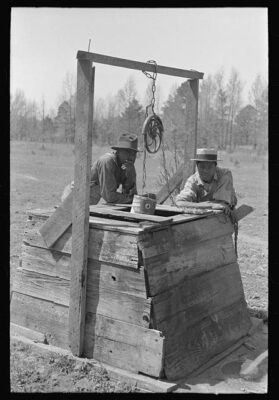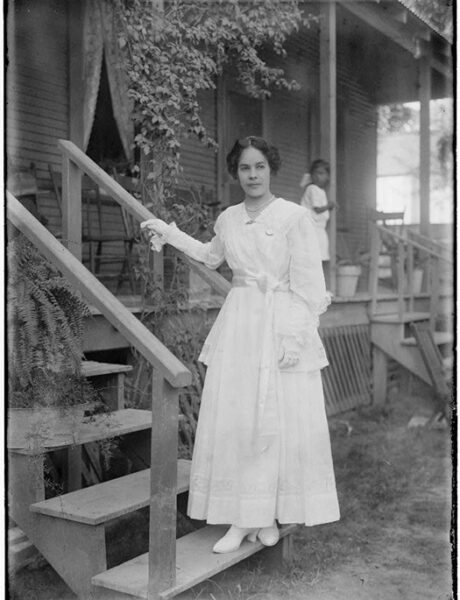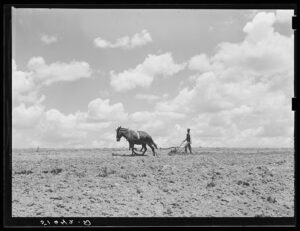First Funeral
Simple truths told to six-year-olds are complicated.
Holding her in front of her dead grandfather—
Casket awkwardness overwhelming, familial norms inapt—
Tersely, I told her that Pop wasn’t really there.
Yet, she clearly saw him.
Funeral home niceties dress up in black suits of formality
Mingling grief with the business end of death,
the spiritual and the spreadsheet.
People kept saying, “He looks so good.”
She didn’t think so.
She was confused by his gauche, clownish, mortician-made face—
Clearly not the same as the smiling one.
People kept saying, “It’s so nice in here.”
She thought it was cold and stank of disinfectant.
They said he was in a better place.
Where? She wondered aloud.
I looked to the preacher for help;
He averted his eyes.
Simple truths told to six-year-olds are complicated.
Inelegantly, response stammered like a drunkard from my mouth—
something about life and bones.
She stared at him.
Ceremony encouraged the babe’s curiosity; questions followed each phase,
Leading to the final interment confusion:
the rows of cars, strangers, a heap of broken earth,
the groan from the stiff-collared, ruddy boy’s bugle playing taps,
the warbled sound of hymns sang out in the open air.
We wandered—hand-in-hand—amidst the rows of grave markers in the cemetery,
surveying the names of the unknown—
ambling across the earth that will house our bones—
imagining how many fathers and daughters lay beneath—
discovering a fractured, unadorned marker
slouching unfavorably next to a grandfather oak tree with limbs
crouching down to the earth like hovering spider legs,
protecting the remnants underneath.
“What a great fort that would be,” she exclaimed.
Afterward, the child’s first sight of her father crying made
manifest the day’s cumulative unease.
Tears stood at attention, waiting for permission to run down her freckled cheeks—
waiting for a blink.
Her sadness an odd mixture of imitation and unfamiliarity—
The first confused taste of loss and loneliness.
“Why do people say Granny’s heart is broken?
Hearts can’t really break, can they Daddy?”
Simple truth’s told to six-year-olds are complicated
**
The Reenactor’s Battle: 1865-2012
He recapitulates
what he had previously recapitulated:
(an inspired speechmaker: like King James English off the simple preacher’s tongue)
stories which don’t have beginnings or endings— of per annum reenactments
bred with historical folklore—
they just were, or are,
in a concoction of present-tensed past.
On twenty-five acres south of the Wal-Mart, cocooned in aphotic revelry,
(where pastures of white cotton grew impotent lawn mowers and tangled heaps of scrap–
as plantations lost their hallowed inheritance to mobile homes,
churched up with lattice work around rusted out bottoms and jerry-rigged, sagging porches)
a diminutive regiment gathers to fight.
As next year and the next year and the next and on
will be ’65 and then ’65 and forever ’65;
when generations
half-drunk on aplomb grandeur
make a pilgrimage
to their sacred pageant-rite
to birth a battle—
long lost,
fought and lost,
to fight and lose.
**
Pop’s Loss
His loss—in the mountain cold, Arkansas wind chill—
November, 1935—
lives in the questions
his grandkids ask now a half-century past:
“What was it like, Pop?”
“Did it hurt?”
“What did you do with the toe?”
“Can we see the stub?”
The lapsed time, though, shakes particulars loose—
fragmenting pictures, pithy responses.
Shaky details and half-painted pictures birth tall-tale and legend.
Irreplaceable,
until that November day,
he never thought much about it—
like any other bit of the daily,
holistic simplicity.
When it rains, can he feel the pain of the ax—
remember the sound chaos makes:
the ear piercing ring pounding in his head, the hot blood spilling out of his tattered boot, staining the frosted ground.
Limping the quarter mile, trailing his blood
like Hansel’s crumbs, to his mother’s embrace—
too far from the doctor, too poor for proper care,
Mother’s mollycoddling wrestling Father’s
stern disapproval—a reminder of the sin of idleness.
Brother taking the ax back to answer
Work who cared only for completion?
Did it shake his resolve? Did he now understand
how impermanent his parts were or the impermanence of his whole?
Or did he chalk it up to the casualties of farm life,
another emotion planted under the soil of daily endurance?
Days later, he would make the same march, ax hand steadied;
though the blood trail now disappeared
beneath hardened mountain earth—
only a swollen stub, hidden, to vouch.







